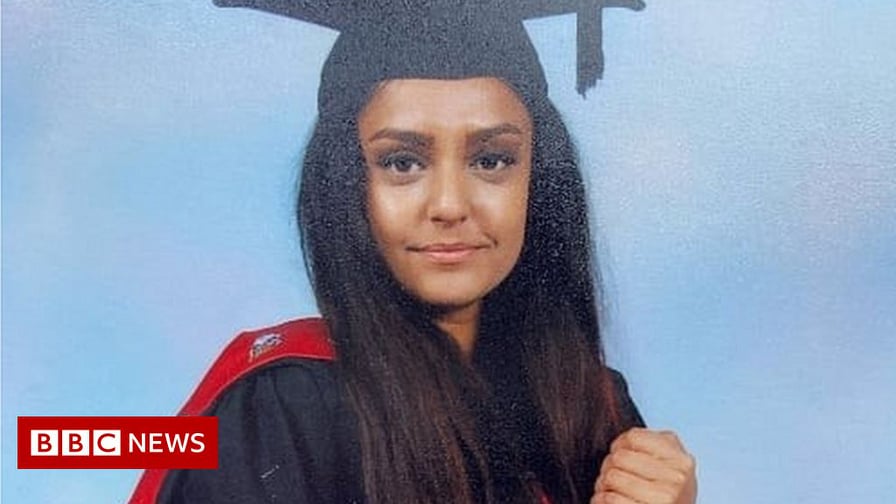A bright young woman, glowing in her graduation photo – the image of 28-year-old Sabina Nessa most of us have seen across the news and social media.
Just six months ago, Sarah Everard’s case took the media by storm and sparked concerns about violence towards women, but Nessa’s death has reignited such conversations and provoked concern over the lack of progress in providing women and girls with the safety to walk alone at night.
Sabina was walking to meet a friend last Friday night (September 17) in south-east London, a journey which should only have lasted just over five minutes. Instead, the primary school teacher was found dead the following morning on Saturday, September 18, in Cator Park near Onespace Community Centre.
Tributes have been continuously left in nearby Pegler Square, and a vigil was held on Friday (September 24). More than 500 people joined the vigil and hundreds of tributes were posted on social media, with one message from the Duchess of Cambridge.
However, from scrolling social media and speaking to friends, it is clear the murder of Sabina Nessa has had nowhere near as much attention as that of Sarah Everard, a 33-year-old marketing executive killed in March by Metropolitan police officer Wayne Couzens.
Some say it is a question of bias in the media for reporting victims of different races and ethnicities. But is this another classic case of an ephemeral trend?
According to Google Trends, searches for ‘Sabina Nessa’ received a value of just under 25, whilst the search interest of ‘Sarah Everard’ gained the peak popularity value at 100, demonstrating a clear lower interest in the case of Nessa. Media coverage was minimal, as opposed to Everard with people lining the streets protesting for ending violence against women, these images and videos being plastered across social media.
But what about all the other women who never make it onto front-page new. Or any page for that matter? Nessa’s case is not isolated, with a total of 77 other women thought to have been murdered here in the UK, a man being the principal suspect, since Sarah Everard’s death, with little or no media attention. How many of their names are we aware of?
Of course, victims should not easily be compared, every single story is tragic and different. It must be remembered that Nessa’s body was discovered the day after she went missing, as opposed to a week later in Everard’s case, so there was more time for large-scale police and media missing person campaign, as cynical as it sounds.
However, six months after the huge media storm surrounding the death of Sarah Everard, it feels like very little change has happened for women’s safety and here we are, facing the same news on our screens. Whilst social media is excellent for raising awareness and connecting with people, perhaps the trends do very little for implementing change. Institutional change and education are needed to compact violence against women. The additional £25m No. 10 announced for better lighting and CCTV on the streets is simply just painting over the cracks of our society.
But with social media relatively quiet, once again, about violence against women, having moved on from the trend that was seen everywhere in March, the question is what can people do to help implement change so women can feel safe on the streets?
Most importantly, do not let their deaths just become a trend – keep the conversation going and call others out on behaviour that makes you feel uncomfortable. Education is the key to preventing gender-based crimes. Simply sharing an Instagram post once or twice whenever there is a trend is not enough. Message your local MP demanding change and keep the pressure on the government, through peaceful protests and awareness events, to change and apply new laws to protect women.
Yesterday (September 27), a man was charged with the murder of Sabina Nessa and will appear before Willesden Magistrates’ Court this week, a result that will hopefully provide some justice for Sabina and her family. But as justice is served, let’s all do our part in making sure another total of 77 women will instead be safe in six months’ time.
Lead image: BBC News

